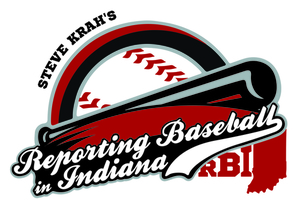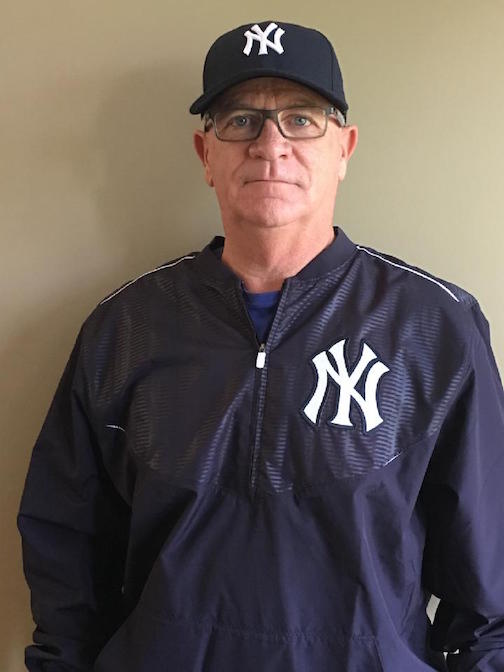
By STEVE KRAH
Pat Murtaugh and Ron Rychlak have been exchanging baseball stories for many decades.
Teammates and members of the first graduating class at McCutcheon High School in Lafayette, Ind., in 1976, the friends kept in touch over the years while former Mavericks second baseman Murtaugh found his way in baseball as a coach at West Lafayette (Ind.) High School and then a scout of the Chicago Cubs, Atlanta Braves, Cleveland Indians, Montreal Expos, San Diego Padres, Arizona Diamondbacks, and eventually the New York Yankees.
Former McCutcheon third baseman Rychlak pursued a career as a lawyer, law professor and author.
Over the years, Murtaugh often told Rychlak that he should write a book about the life of a baseball scout.
That book — “The Scout’s Driver: Based on the True (But Greatly Exaggerated) Stories of New York Yankees Scout, Pat Murtaugh” — is scheduled for publication by John Koehler on Oct. 15, 2024.
Rychlak, who is a law professor at the University of Mississippi and a faculty athletics representative for Ole Miss, has sold the rights to turn another of his books into a movie. The former player at Wabash College in Crawfordsville, Ind., shared the “The Scout’s Driver” manuscript so there’s a possibility it could get the same treatment.
When writing the book, Rychlak searched and searched for the right approach then decided to wrap the work of more than 400 pages around the crazy things that happened to Murtaugh in 2017.
“I realized that Pat had this wild story which is true where he lost his license in spring training and has to hire a driver for the summer to go with him,” says Rychlak, who figured out a way to weave fiction with non-fiction. That includes a black widow spider bite that required surgery, problems with home construction, an almost-lost championship ring and many stories pulled from experiences had by Murtaugh or Rychlak. “I put as much real scouting in it as I could. I used stories that I heard from Pat and stories that I knew first-hand.”
Some of the names used in the book are people in the lives of Murtaugh and/or Rychlak. Roger Taulman really was the driver. Rychlak opted to make him younger for story-telling purposes. The Smith sisters are based on Rychlak’s mother and aunt. Other characters are made up altogether.
“There’s a lot of truth about (Pat’s life),” says Rychlak. “There’s a lot of truth about scouting. A few things had been condensed and re-written to make it into a fun story.
“You don’t have to be completely into baseball to appreciate it.”
Murtaugh really does have a wife named Kathleen and three stepchildren. He has dogs named Scout and Ace.
With the book, Murtaugh offers a peak into juggling his life and his duties of assessing diamond talent.
“It’s not all showing up to the game, eating a hot dog and drinking a beer,” says Murtaugh. “It’s the evaluation and how you put it all together.
“The report we send in speaks volumes to the direction of what players we go for and what players we don’t go for.”
Murtaugh estimates he wrote 800 reports in 2023.
“We write on everybody we see,” says Murtaugh. “The reports take an hour with each guy. Most of the stuff is behind the scenes and when you hit ‘send’ that’s your word and you believe in what you’re saying.”
Evaluation includes things like speed, power, arm strength and such, but also character and attitude and habits, dedication, agility, aptitude, physical maturity and mental maturity.
“Not everybody can play in New York City,” says Murtaugh. “You’ve got to have some tough skin to play in New York.
“We spend a lot of time looking at make-up and all that stuff.”
When Murtaugh went into a home to talk with a player and their family, he noticed who was likely to be the decision-maker.
“It might be the mom who’s going to make the final decision,” says Murtaugh. “You’ve got to keep her a part of the conversation. Don’t just look at the dad and son.”
There are extensive background checks, because unlike college with the Transfer Portal, the player can’t just leave and go to another team. This is there job and the team has money and time invested in them.
“A college may give half a scholarship that they can revoke at any time,” says Murtaugh. “We give a $1 million signing bonus, we don’t get that money back.”
Says Murtaugh in the book, “Sometimes the hardest part is assessing drive.
“Numbers and character both matter. Good scouts keep learning. That’s why I always say I’m not old school, I’m not new school, I’m in school.”
“In scout school, they said there were four kinds of scouts — the four Ps: Poor, because they waste time not having a plan. Pickers, those who look at one factor and neglect other strengths and weaknesses. Performers are guys who base the complete evaluation on what a player will be able to do in a few years.
“And Projectors, scouts who can actually envision what a player will be able to do in a few years.”
Once splitting his year between amateur and pro scouting, Murtaugh has been strictly on the major league side with trades the past few years.
With the advent of Zoom about the time of the COVID-19 pandemic, Murtaugh is now involved in many long calls.
“On this side of it, you could get a call on Christmas Day,” says Murtaugh. “I’d say 80 percent of the hard work with the trades don’t ever materialize.
“But you’ve still got to do the process because you don’t know how it’s going to end up.”
Murtaugh has learned that scouting is about building the relationships with people that help make his job smoother, like getting his tickets and prime seats at the ball park. He thanks these folks with gift cards or — perhaps — team gear.
“You’ve got to build the rapport with people and not just take,” says Murtaugh. “They’ve got to get that return.”
Murtaugh is at a game to do his job, but he also realizes that fans are there to enjoy themselves and are often curious about his role or will put in their two cents about a player.
“We don’t have a job if fans don’t go to the games,” says Murtaugh. “Every town has a guy that I should see. You just be cordial and talk to them.
“One of the thing that prompted book is that they’re so curious about what we do.”
Murtaugh has a Purdue University degree in Kinesiology — the scientific study of human body movement.
“I can’t tell you how much that’s helped me,” says Murtaugh. “When you’re breaking down player and how their body moves, can you do anything to improve it?
“It’s helped me immensely in projecting with a young player. More and more, there’s so much analytical data involved. I can ask the (strength and conditioning staff) some things on an intelligent basis on why they think something would work with range of motion or something like that.”
There’s a section that addresses some of the top all-time scouts — Hugh Alexander, Bob Fontaine, Dave Yoakum, Red Murff, Cy Slapnicka, Charlie Wagner, Mel Didier, Elmer Gray, George Genovese, Joe Cambria, Tony Lucadello, Kenny Myers and Tom Greenwade — and a question of why they are not currently enshrined in the Baseball Hall of Fame and Museum in Cooperstown, N.Y.
Baseball scouting has long used a scale — sometimes known as 8/2.
“An 8 — which very few ever give out — is a Hall of Famer,” says Murtaugh. “A 7 is an perennial all-star. A 6 is an occasional all-star.
“5 means he’s an average everyday major league player. You take a step down into the 4’s then you a bench player. A 3 is a Triple-A guy who can come up and then they’ll send him back down after a few weeks or a pitcher who comes up for a spot start.
“If he’s a 2, can he help you minor league teams win?”
Murtaugh says scouting is a performance-based job.
“If you’re way off-track, you’re not going to be doing it for very long,” says Murtaugh, who is in his 36th year as a baseball scout.





































